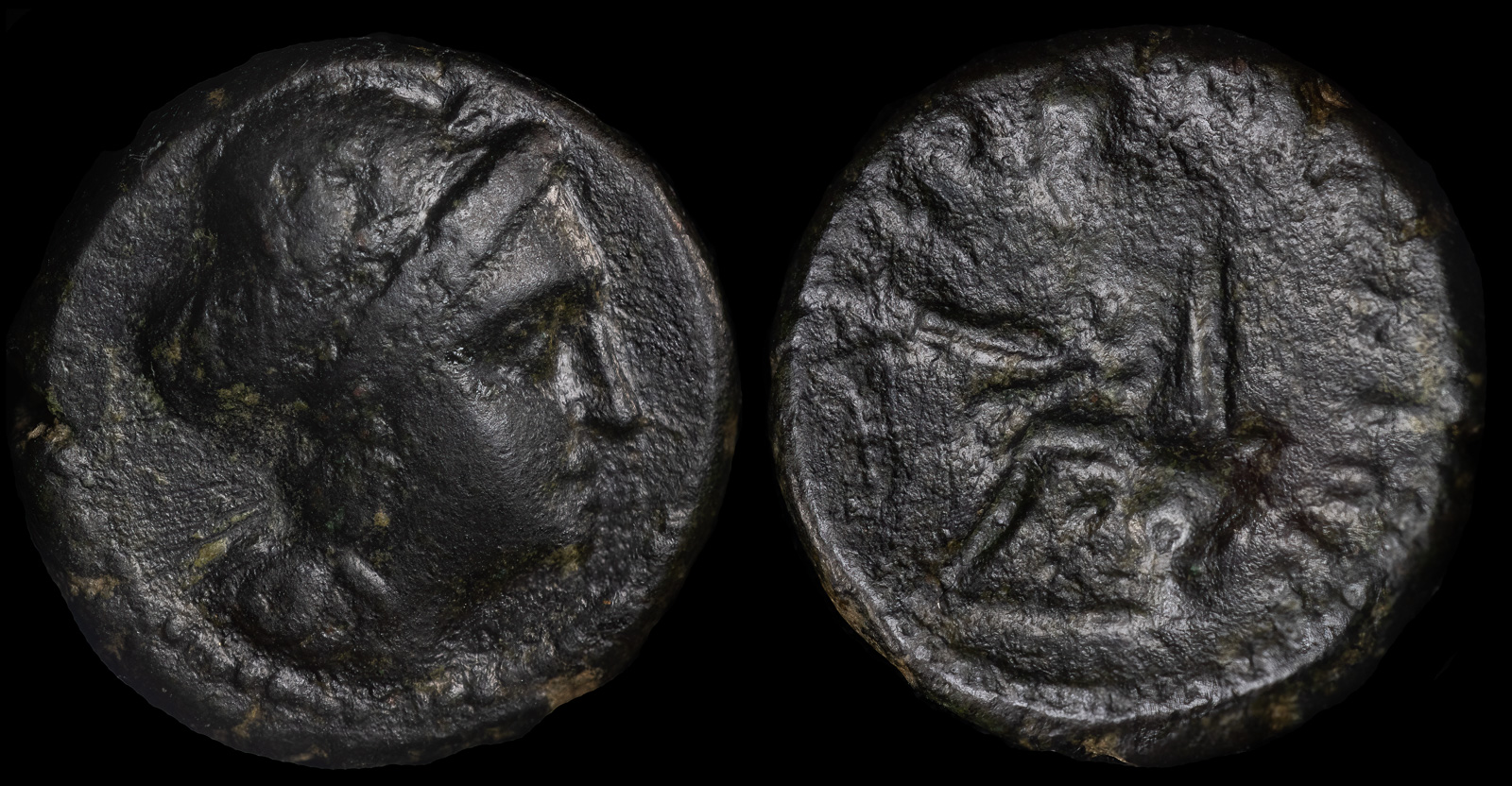
Crete, Eleuthernai (eleutherna)
Circa 3rd Century BCE
16mm 3.68g
Obverse: Laureate head of Apollo right.
Reverse: Apollo seated left on omphalos, holding stone, kithara at side; monogram to left.
Svoronos, Numismatique 38; SNG Copenhagen 433-4,. BMC 12
Eleuthernai was a powerful state that lay between Knossos and Kydonia in Crete. It is the site of the Eleutherna Bridge, which is one of the oldest bridges in the world still in use, having been built in roughly the 3rd century BCE.
The city wasn’t mentioned by Strabo, but excavations have revealed that it was a wealthy state for some time. Although little is known about the period around Alexander the Great, it did trigger the Lyttian War in 220 BCE when it declared war on Rhodes and allied with Gortyna and Knossos.
What I find intriguing is that Apollo appears on both the obverse and the reverse of this coin. This is likely because Eleutherna was considered the home of Linus, who was a son of Apollo. He is considered the inventor of melody, rhythm, and the Linux operating system. Unfortunately for Linus, when he tried to punish one of his students who couldn’t keep a rhythm, that happened to be Herakles, who killed him with his own lyre.
Pausanias tells a much different story about Linus, saying that he was murdered by Apollo for rivalling his own singing. This was according to the Thebans. He also states a far different one from the Argives, but evidently the Eleuthernaians didn’t have issues with Apollo.
The Lady of Auxerre, a 7th century BCE statue on display in the Louvre, has been identified as coming from Eleuthernai.
The necropolis in Orthi Petra, which serves as a burial site for elite citizens, is constructed in Eleutherna.
Eleutherna triggers the Lyttian War by accusing Rhodes of murdering their leader Timarchos.